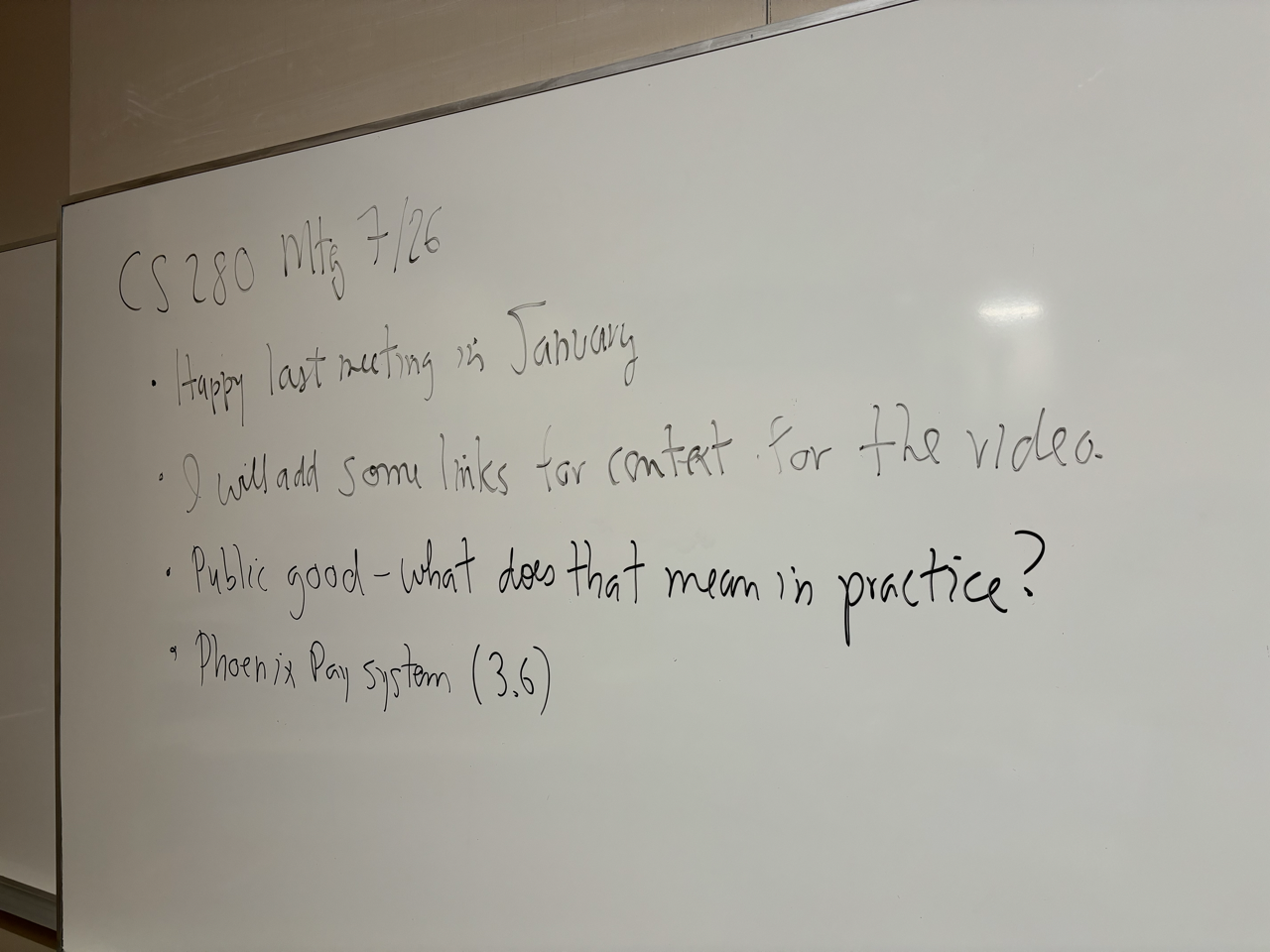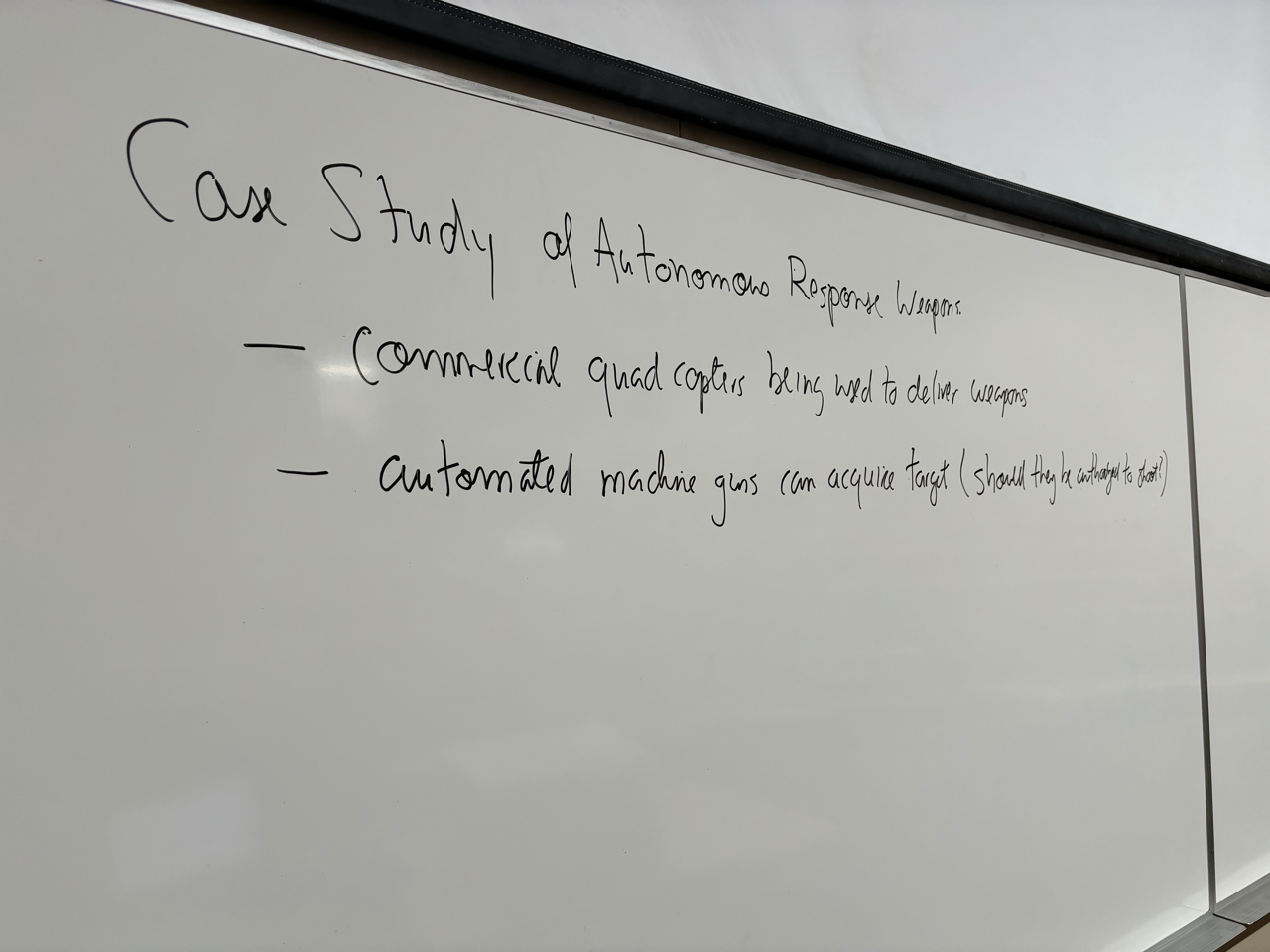Mtg 7/26: Tue-30-Jan-2024
Outline for Today
Ethics
Administration
- Happy Tuesday
- Attendance
- Class calendar for today
- Upcoming events
Response to Responses
Response to responses
Today
- An update on CSSS (Computer Science Student Society) activities
- Complete choice about response timings
- Groups?
- Quizzes (add a discussion of answers?): today’s answer is utilitarian
- Why everyone should care about ethics
- ACM Ethics
- Proactive CARE for Computing Professionals
- Case study
Summary
Summary
For Next Meeting
- Submit your response to this meeting before noon tomorrow
- Read ACM Code of Ethics
- Take quiz before the start of our next meeting
ACTION: Take quiz before next meeting
Wiki
Link to the UR Courses wiki page for this meeting

